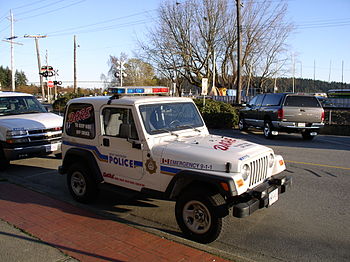
In 2014, Florida’s legislature passed the Compassionate Medical Cannabis Act. The idea was to make strains of marijuana that are low in THC (the stuff that gets you high) and high in CBD (the stuff that helps children with seizure disorders) legal with a doctor’s prescription.
A year-and-a-half later, patients still await legal permission to purchase their medicine while state health bureaucrats and would-be providers of low-THC cannabis wrangle over which five nurseries will receive licenses to operate medical marijuana dispensaries.
Yes, you read that right. In a state with a population of nearly 20 million, only five plant nurseries will be legally permitted to provide medical marijuana. One wonders why the legislature even bothered. Was the Compassionate Medical Cannabis Act just window dressing, passed to shut up a few loud constituents and maybe cloud the issue enough to hold off real marijuana policy reform for a few more years?
Florida’s not alone. Around the country, medical marijuana laws are mostly piles of red tape seemingly designed for the specific purpose of making it as difficult as possible for anyone, anywhere to get a harmless, ubiquitous plant.
Yes, I said harmless. As “drugs” go, marijuana is less dangerous, less addictive, and has fewer harmful side effects than alcohol. Or, for that matter, sugar.
I can sum up why cannabis was ever made illegal in the first place in one word: Politics.
Ditto for why it remains illegal: Money. The main function of the war on marijuana today is to keep police departments and correctional facilities overstaffed and flush with money for overtime.
If there’s any such thing as a marijuana crime, it’s the fact that the plant remains illegal long after every myth of its evil effects has been conclusively debunked.
Fortunately, some states are moving away from the unmitigated evil of the war on marijuana. Alaska, Colorado, Oregon and Washington have legalized it for both medical and recreational use, albeit with some of the same burdensome regulations.
In the sunshine state, Floridians For Freedom are working to put the “Right of Adults to Cannabis” initiative on the 2016 ballot. The proposed law would recognize the right of adults to possess, use and cultivate cannabis.
The initiative isn’t perfect — it would allow the state to regulate the purchase and sale of marijuana “in the interest of health and safety,” something the state has already proven it can’t be trusted to do with medical cannabis — but it’s a start.
Four states down, 46 to go. When and if you vote next year, remember to ask the candidates where they stand on cannabis legalization. Any politician who’s not enthusiastically in favor of ending the war on marijuana doesn’t deserve your support.
Correction: The original version of this article left Oregon out of the count of states which have legalized both medical and recreational marijuana use. I apologize for the error, and thanks to commenters “Jolly green giant” and Tom Welsh for pointing it out.
Thomas L. Knapp is director and senior news analyst at the William Lloyd Garrison Center for Libertarian Advocacy Journalism (thegarrisoncenter.org). He lives and works in north central Florida.
PUBLICATION/CITATION HISTORY
- “Marijuana: A Better Plan,” by Thomas L. Knapp, Ventura County, California Citizens Journal, 12/15/15
- “Marijuana: Three States Down, 47 to Go,” by Thomas L. Knapp, CounterPunch, 12/16/15
- “Marijuana: A better plan,” by Thomas L. Knapp, Muscatine, Iowa Journal, 12/16/15
- “Marijuana: A better plan,” by Thomas L. Knapp, Davenport, Iowa Quad-City Times, 12/16/15
- “Marijuana: A better plan,” by Thomas L. Knapp, Key West: The Newspaper [Florida], 12/18/15
- “A solution to the marijuana issue,” by Thomas L. Knapp, Libby, Montana Western News, 12/18/15
- “Marijuana: A better plan,” by Thomas L. Knapp, Pensacola, Florida News Journal, 12/19/15
- “Marijuana: A better plan is possible,” by Thomas L. Knapp, Eastern Maumee Bay Communities [Ohio] Press, 12/22/15


